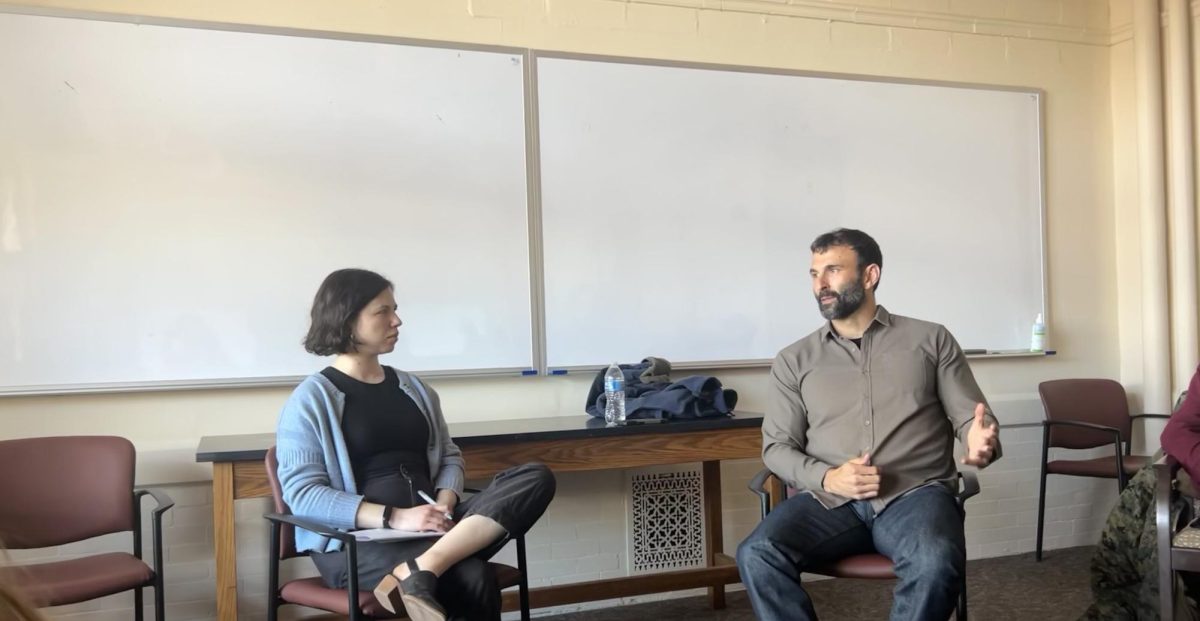Award-winning journalist and Pulitzer grantee Jason Motlagh visited the University of Wisconsin April 9 for a talk titled “Human Rights, Human Wrongs: Stories from the Frontlines.” The event was hosted by the Institute for Regional and International Studies National Resource Center.
The talk highlighted Motlagh’s work as a foreign correspondent and freelance journalist reporting on global conflicts in countries including Afghanistan, Myanmar and Haiti. Specifically, Motlagh’s reporting focuses on human stories associated with conflict.
During Motlagh’s time in Haiti, he witnessed the United States’ abetment in crimes through gun running to Haitian coastlines. These weapons would end up in the possession of 14 and 15-year-olds who barely had enough to eat yet were associated with violence in Haiti, Motlagh said. Despite this knowledge, a stigma still exists around illegal immigrants entering the U.S. as they are often associated with rising crime, according to Motlagh.
“I want people to understand our [the U.S.] role in Haiti is one that goes back a long time, but especially now and that we need to humanize the people that are being affected by this,” Motlagh said.
At the height of the war in Afghanistan, Western media paid close attention to statistics but failed to investigate the impact the conflict had on the people, Motlagh said.
When tasked with reporting on the implications of U.S. airstrikes on civilians, Motlagh focused on revealing civilian sentiments at the time by immersing himself in the culture, he said.
“You weren’t getting a sense of the impact this was having on people’s hearts and minds and how they were supporting this whole effort,” Motlagh said. “[Hope] was being squandered with the airstrikes and insurgence was multiplied as a result, so I was trying to emphasize that.”
Later in 2018, Motlagh reported on the Rohingya Genocide, an ongoing series of persecutions and killings of the Rohingya people in Myanmar, for Al Jazeera and Rolling Stone.
Despite ongoing persecution by the state of Myanmar, the United Nations and larger international community were slow to address the issue, ultimately enabling the military to pursue crimes against the Rohingya people, Motlagh said.
“That’s one of the things you reckon with doing this kind of work, whether you’re in the aid sector or journalists, you come in with certain ideals and you have beliefs in the system [UN and international community],” Motlagh said. “Then you see how these systems function and how they fail.”
Motlagh’s work is currently being used to build a case against the Myanmar government for its genocide of the Rohingya people, he said.
Ultimately, Motlagh’s work explores the intersection of conflict and human conditions through journalism that appeals to both the heart and the mind. By immersing himself in the culture of various countries experiencing conflict and disaster, Motlagh hopes to bridge the gap between the Western world and the human experiences in overlooked areas.
“If we don’t learn from them [Motlagh’s stories] now, we can learn from them in the future and without it, I think the worst things will continue to happen in the shadows,” Motlagh said.







